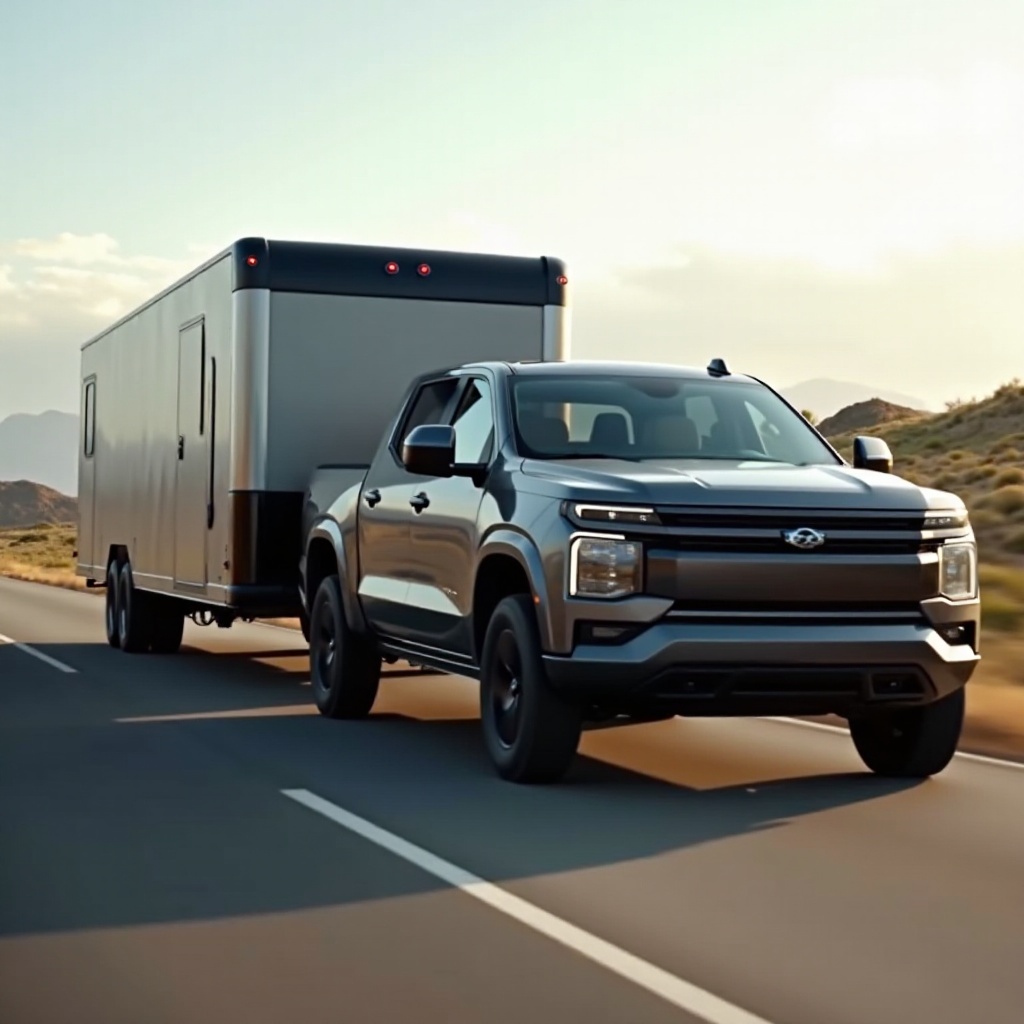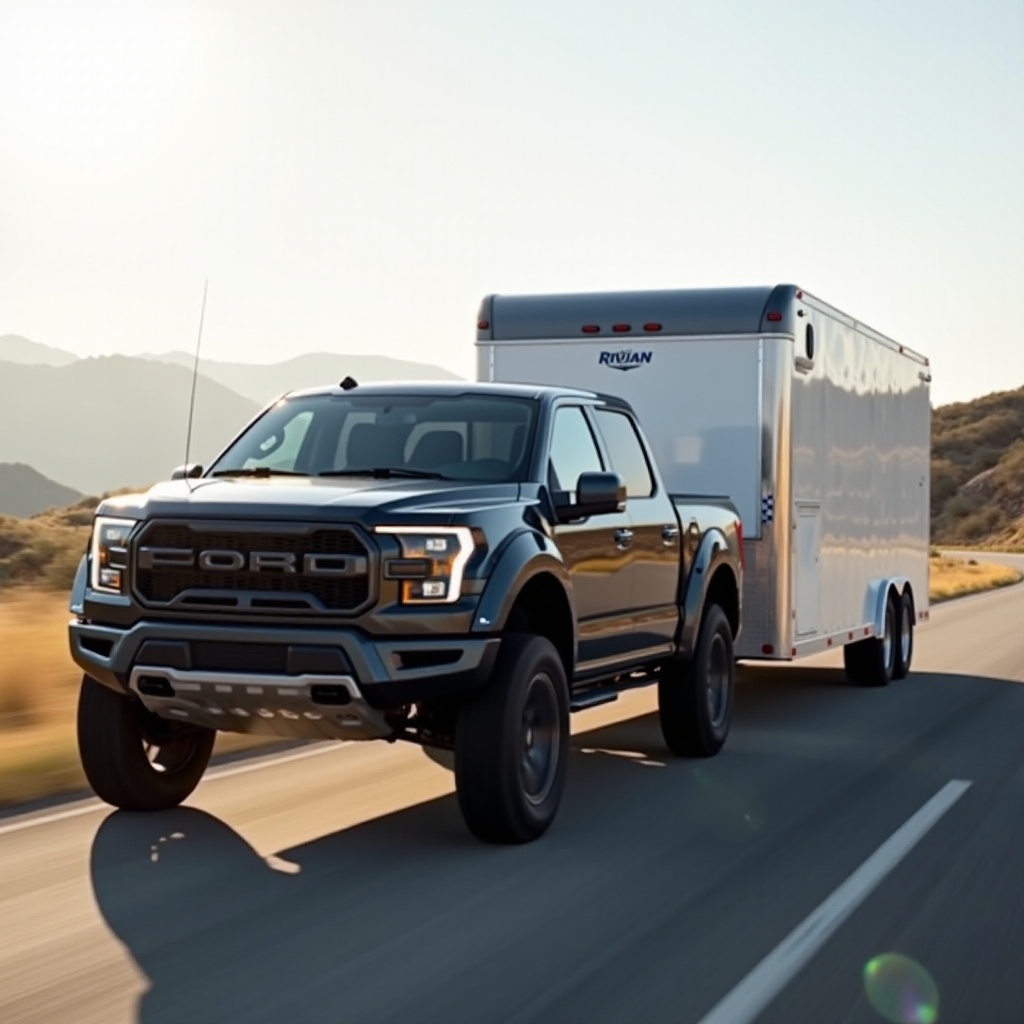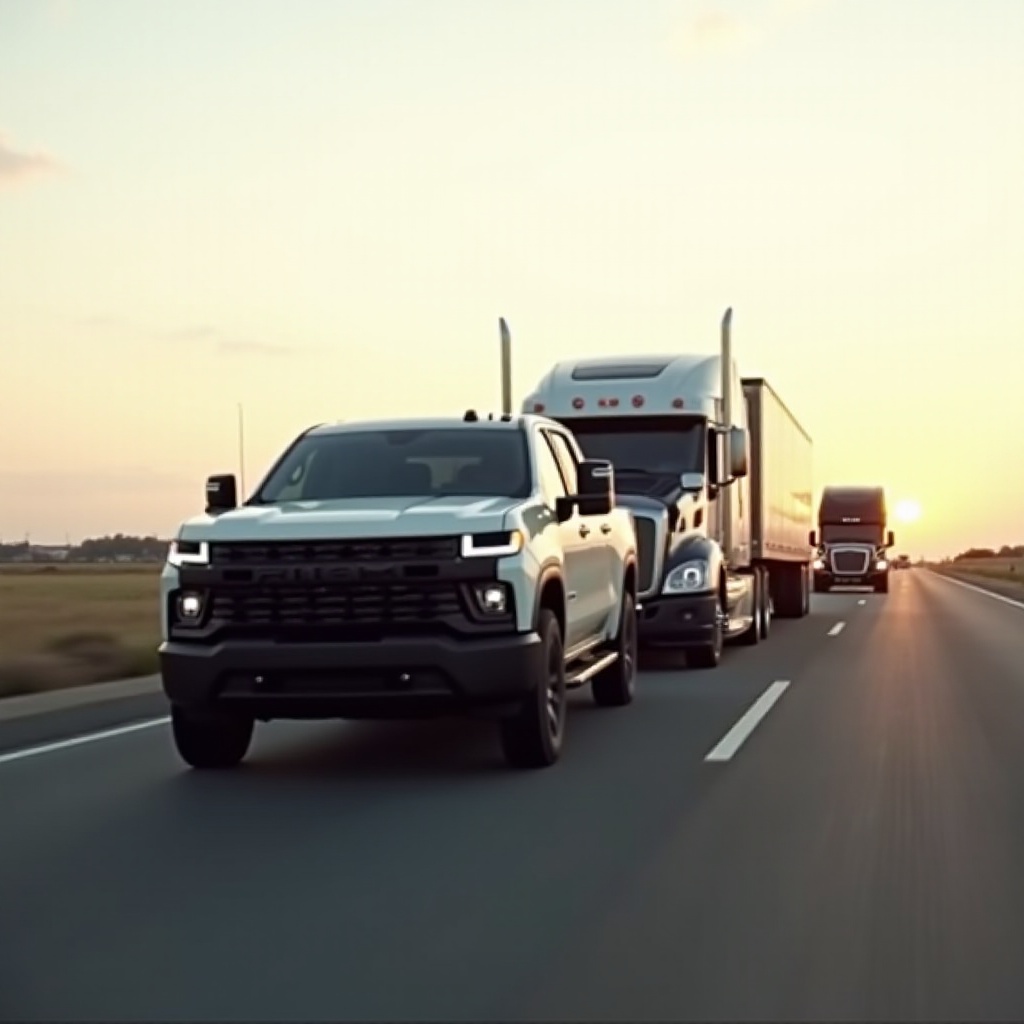Introduction
Rivian, an emerging leader in the electric vehicle (EV) market, is making waves with its innovative truck models. With an emphasis on sustainability, performance, and adventure-readiness, Rivian trucks are built to handle a variety of tasks that traditional vehicles usually dominate. One critical factor for truck owners is towing capacity. Understanding the towing capabilities of Rivian trucks can provide insight into their practical use in everyday tasks and adventurous exploits.

Overview of Rivian Trucks
Rivian offers two primary models designed to meet the demands of modern drivers—the Rivian R1T and the Rivian R1S. These models boast significant advancements in electric vehicle technology, setting them apart from other EVs and traditional combustion engine trucks.
- Rivian R1T: This all-electric pickup truck is designed for off-road adventures and hardy tasks. Its quad-motor setup delivers dynamic performance, and it features a spacious interior with advanced tech integrations.
- Rivian R1S: Built for families and explorers alike, this SUV shares many components with the R1T, including its robust performance capabilities. The R1S provides ample seating and cargo space, ideal for long journeys or heavy-duty towing.
Both models emphasize high performance and luxury, making them suitable for both daily driving and heavy lifting.

Towing Capacity Details
The towing capacity of Rivian trucks is a significant selling point for many potential buyers:
- Rivian R1T: The R1T boasts a maximum towing capacity of up to 11,000 pounds. This impressive capability puts it in line with many traditional full-size trucks, yet it offers the eco-friendly benefits of an electric vehicle.
- Rivian R1S: While the R1S is primarily marketed as an SUV, it doesn’t fall short in the towing department either. It also can tow up to 7,700 pounds, making it a versatile option for family vacations, towing trailers, or transporting heavy cargo.
These figures highlight Rivian’s commitment to combining electric innovation with robust towing capabilities, crucial for practical use and competitive edge.
Factors Influencing Towing Capacity
Towing capacity isn’t dictated solely by the numbers on a spec sheet. Several factors influence how much weight a Rivian truck can tow in real-world conditions:
- Weight: The total weight of the towed load, including trailers and additional cargo, plays a significant role. Exceeding the recommended limits can strain the vehicle’s components and reduce overall performance.
- Terrain: The nature of the driving surface impacts towing capacity. Off-road or hilly terrain can increase the demand on the vehicle’s powertrain, thereby affecting its towing efficiency.
- Weather Conditions: Adverse weather such as wind, rain, or snow can reduce towing performance. Slippery or windy conditions demand more from the vehicle’s stability and traction control systems.
- Battery Life and Efficiency: Towing heavy loads consumes more energy, which can impact the driving range of an electric vehicle. To maximize towing performance, it’s essential to monitor battery levels and plan charging stops accordingly.
Understanding these factors helps in making informed decisions while towing and ensuring the longevity and efficiency of the Rivian truck.
Comparing Rivian to Competitors
Rivian isn’t the only player in the electric truck market. Comparing Rivian to other notable models can provide additional context:
- Tesla Cybertruck: The futuristic Tesla Cybertruck claims a towing capacity of up to 14,000 pounds in its tri-motor variant. This higher capacity makes it a strong contender, although its unconventional design and features cater to a slightly different market segment.
- Ford F-150 Lightning: The all-electric version of the bestselling Ford F-series, the F-150 Lightning offers a maximum towing capacity of 10,000 pounds. With Ford’s reputation and established base, it provides a compelling mix of traditional truck qualities and electric innovation.
Comparing these models helps to contextualize Rivian’s place in the market, showing its strengths and opportunities for growth. Rivian’s towing capabilities place it strongly against these competitors, highlighting its balanced approach to performance, sustainability, and innovation.

Real-World Towing Experiences
User reviews and testimonials provide practical insights into the towing performance of Rivian trucks:
- User Reviews: Many Rivian owners have shared positive experiences regarding the vehicle’s towing performance. From hauling boats to cross-country camping setups, users appreciate the seamless blend of power and control.
- Practical Applications: Real-world applications include everything from recreational towing, like boats and campers, to practical large-scale hauls for work-related tasks. These testimonials underline the truck’s reliability and versatility.
These experiences confirm Rivian’s real-world capabilities, echoing the numbers and specs provided by the manufacturer.
Advantages of Towing with a Rivian
Towing with a Rivian truck offers several unique advantages:
- Environmental Benefits: As an electric vehicle, the Rivian eliminates the emissions associated with traditional combustion engines. This green towing option appeals to eco-conscious drivers looking to reduce their carbon footprint.
- Cost Savings: Electric vehicles often entail lower maintenance costs than traditional trucks. From reduced fuel expenses to fewer mechanical repairs, savings can be significant over the truck’s lifetime.
Additionally, Rivian’s enhancing performance features, such as torque vectoring in its quad-motor system, provide better stability and handling control, especially when towing heavy loads.
Challenges and Considerations
Despite its many advantages, there are challenges and considerations to keep in mind:
- Charging Infrastructure: The availability and accessibility of charging stations can impact the efficiency of long-haul towing. Planning routes that incorporate charging stops is essential.
- Impact on Range and Battery Life: Towing significantly impacts the vehicle’s battery range. It is crucial to account for this reduced range when planning trips and managing battery life to avoid disruptions.
These factors remind users to balance enthusiasm with practical considerations, ensuring a smooth and efficient towing experience.
Conclusion
Rivian’s R1T and R1S demonstrate impressive towing capabilities, balancing performance and sustainability. Their unique blend of advanced technology, luxury features, and practical towing power make them formidable contenders in the electric vehicle market. As Rivian continues to innovate and expand its offerings, its trucks are set to play a significant role in the future of eco-friendly utility and adventure vehicles.
Frequently Asked Questions
How much can the Rivian R1T tow?
The Rivian R1T can tow up to 11,000 pounds.
How does towing affect Rivian’s battery life?
Towing heavy loads consumes more energy and can reduce the vehicle’s driving range.
What are the best practices for maximizing towing efficiency with a Rivian?
Monitor the weight, plan routes around charging stations, and consider terrain and weather conditions to maximize efficiency.
